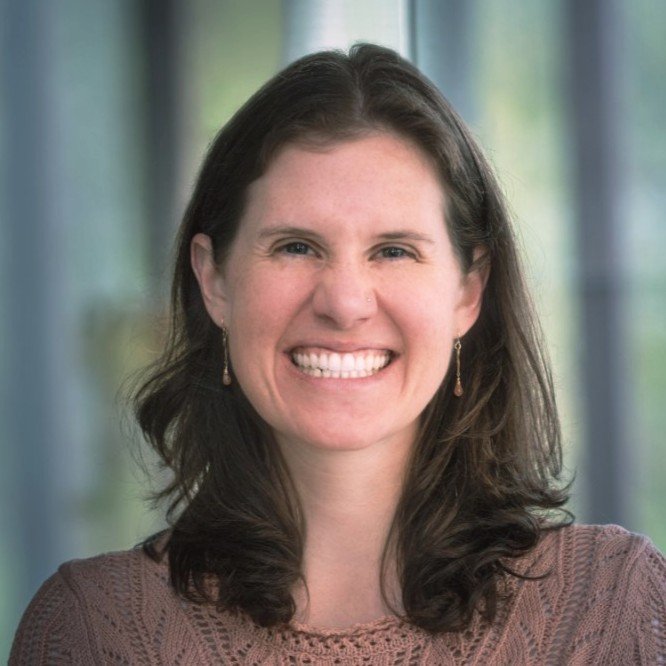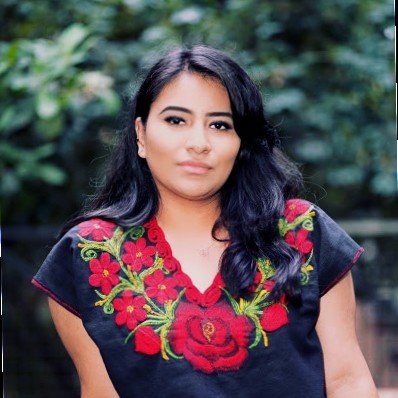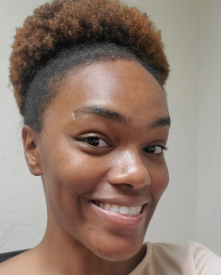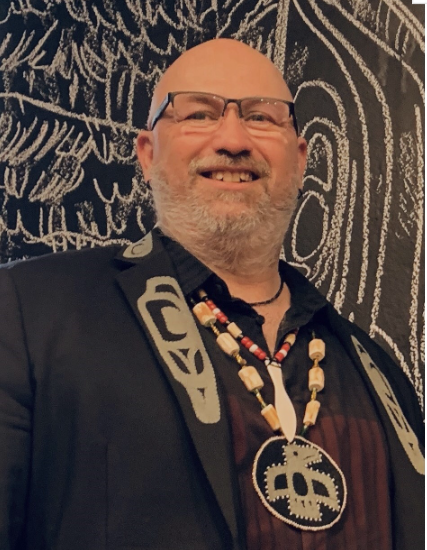Will Booth
Program Manager, T3 (Tribal Technology Training)
Interview by Noura Abdelkader & Bogdan Banica
November 21, 2022
Will Booth, a Program Manager at T3 Tribal Technology Training talked about giving everyone equal access to internet and digital devices, as well as treating broadband like any other utility. T3’s mission is to train people in tribal communities to use the internet and digital devices so that they can pass on their knowledge to other members of the community.
Q. What is your definition of Digital Equity?
WB: I would define digital equity as equal access, no matter your economic status, to not only technology but the accessibility to the technology via Broadband.
I would also like to add that for digital equity to be equitable for all parties, broadband must be treated like any other utility. We all pay for water, electricity, sewer, trash, etc., which are all utilities. Broadband should be treated just like any other utility. Everyone has access to utilities.
Q: What about Digital Equity motivates you?
WB: For me, it's being able to connect with members of the community, hearing their stories, hearing what they're going through, and helping to find a pathway to get them the access that they need. Working within tribal communities, it's much more hands-on as well. We get to help them use software and learn how to teach others how to use it so that, eventually, we'll get to a point where everyone will have basic knowledge. Then, we're not all fumbling around trying to figure out how you answer a phone call, how you check your email, or how you create an email account.
Q: What are you passionate about in this space?
WB: What I’m passionate about is getting to work with the different community members whether it be face-to-face or over Zoom, Microsoft Teams, or some of the other online products. Hearing their stories, watching them learn and develop, and working with others in their community gets me going. It's just real work, it’s tangible. It's so fun to see how people shine when they realize “‘Oh, I know this!” They just didn't know how to name it, and now that they can name it, they feel more confident and they're much more apt to share that knowledge with others. It's fun to watch, to see that smile.
Q. What values and/or principles are important for everyone in this space to do good work?
WB: I try to hold to my values and my principles while doing this work by remembering that these are people. These are members of the community that I, too, am a member of. In many cases, these are close personal friends and family members. Within Native communities, we’re just an extension of our existing families.
When I'm invited in, there are certain protocols when working within tribal communities that I must follow in order to truly be valued and valuable to the work. Understanding those complexities makes it not only easier for me to do what I am there to do but easier for those that I'm there to serve. I take that approach when I work within the other communities that we work with. I'm a guest, so I approach it as I'm not there to quote “save them.” That construct has never worked.
I know many people in many organizations still feel like they’re there to save their clients. We don't do that. We are here to help, but at your speed and at your comfort level. So as long as I follow those guidelines, it may take longer, but at the end of that journey we've succeeded, and in many cases far greater than anyone could have ever anticipated, because we value those levels of respect, dignity, and communication. So those I hold true, and I work and strive to make sure that I follow those wherever I go.
Even before this, when I was in the military living overseas in a foreign country, I tried to at least learn how to say ‘please’ and ‘thank you’ in the local language. I tried to learn how to interact within the areas where I’m not on the base because I’m a guest. Those are values I take with me as I'm doing this work
““What motivates me about digital equity is being able to connect with members of the community, hearing their stories, seeing what they're going through, and helping to find a pathway to get them the access that they need for themselves, their families, and their communities.””
Q. What have been big wins for you and how did they happen? What sorts of support were needed for them?
WB: I'm gonna say one of the biggest wins for me personally was when I was working with a tribal elder who had purchased a number of laptops for their grandkids and nieces and nephews, but who had never personally used a laptop. Sitting down with them in an introductory class, watching them go through the self-assessment, and helping them to understand that they actually know more than they think they do – that they just don't know the “industry standard terms” being used to identify the different parts and pieces of a computer. Like the keyboard, the backspace button, the power button, whatever the case may be, and watching them light up when they successfully completed the initial assessment with a passing score. It took them a couple of tries but realizing they actually understood it better than they thought they did, then walking away with this big smile, like “I can do this, I can actually do this.” For me, that was a major win because the person came feeling overwhelmed, feeling that they shouldn't be there, feeling that they can't do this, but watching them go through the realization that not only can they do this, but they know how to do this, and they can then do more.
For another one, we were working with a tribal community and we were going to do general training on various Microsoft products for their tribal employees. During the process of a number of weekly calls, this training turned into a two-day event with speakers coming from the state level, the federal level, the county level, the city level, the tribal leadership level, and tribal community folks.
So we were able to take what they were asking for and expand beyond everyone's expectations. We had a little over 100 attendees and the feedback afterward was very positive, despite the technological hurdles we had to overcome. We didn't have strong Wi-Fi or the right length of cables, but we worked together as a team to come up with a different solution that would still fit the need of the two-day event. The number of people that showed up to share their information, to share their knowledge openly and honestly with people of the community, and to take those questions and answer them truthfully, was a huge win.
That happened two months ago. Two months doesn't seem like a very long time ago, but as we've seen over the last two and a half years, two months is a long time and a lot can happen. We're still talking about that event and thinking back to how it happened, what it took to make it happen, how can we use that learning to create bigger and better, and how can we just continue to expand that learning for more.
Q. What is Tribal Technology Initiative’s goal in moving towards digital equity? What steps are being made by your organization to reach that vision?
WB: T3’s main mission is to provide training. One of our biggest projects along this pathway is to help create trainers within various communities so that the community can look within itself for expanded knowledge. The goal is to not always have to reach outside and pay exorbitant contract fees. If you have people within your community who have knowledge and have the skills to share that knowledge, you are creating a self-sustainable system. Our particular project is focused predominantly on the different native communities across Washington state; however, other communities of color have reached out and we're working with them to help them develop their version of what we call “train the trainer.”
So, our goal is to train community members to work within their communities so they can do it in their language and in their ways, whether it be part of their culture or because they know how to communicate within said community. We don't have all the answers, but we have a general understanding of the technology itself which doesn't change based on language or culture. A laptop still powers on when you hit the power button, but how do you know where to look to find the power button?
I don't know many of the languages we have here in Washington State, but I know people who do. If I work with them to the point where they feel comfortable sharing knowledge with their community in their language, then more people are going to be able to access it equally. And that's the main mission here. The mission is to share knowledge and create training opportunities for people to not only understand how to learn the technical stuff but understand how to provide that assistance in a personal style.
For example, Nancy Jo Bob, our curriculum developer, is taking multi-volume manuals that most people – including technicians– don’t read because they’re too complex to truly understand. She and I have gone through them and, after she's dismantled them, we’ve converted them into PDFs. Then, we recategorized and reshaped them so that we can teach this material in our ways and languages within our tribal communities. We've then shared these materials with the other partners in this coalition and working with them we retranslated it into their languages, adding their imagery of their cultures. This industry-standard training material is now culturally appropriate for individual cultures. It's the exact same information, it's just been redone by the community for the community.
And so with T3, we haven't created anything new because it's always been there. We're just doing it in a more culturally appropriate manner and respectfully ensuring that the community we're working with can continue to learn from it, can develop it to meet their needs, and can have the soft skills to share it.
Q. What’s an example of some good work so far and who’s been doing it? Who would you like to give a shout-out to?
WB: T3 is honored to be part of the Connect Washington Coalition alongside 48 other community-based organizations across Washington State. The grant that the Equity and Education Coalition (EEC) received from the Washington State Broadband Office made it possible to create this coalition.
A shout-out to EEC and the team that worked very hard with the state compliance and grant requirement folks to shift focus from the stereotypical government grant requirements: name, social security number, phone number, address, name of firstborn, passport, ID, and all the things that don’t really matter. Our reporting is gender identity, age, grouping, race/ethnicity, zip code, and do you want access to the Affordable Connectivity Program for discounted Internet rates? Five questions. That has enabled us to actually do the work. We can focus on providing the training, focus on providing accessible pathways to broadband across multiple languages, cultures, and communities throughout Washington State, and only, you know 1% of our time is focused on the forms because we're not having to provide a litany of stuff that doesn't matter at the end of the day. So huge shoutout to EEC for literally going to the table with the bureaucrats and telling them that none of these reports matter and what actually matters is getting the services to the people that have the greatest need.
Learn more about T3 Tribal Technology Training.
Connect with Will Booth on LinkedIn.






